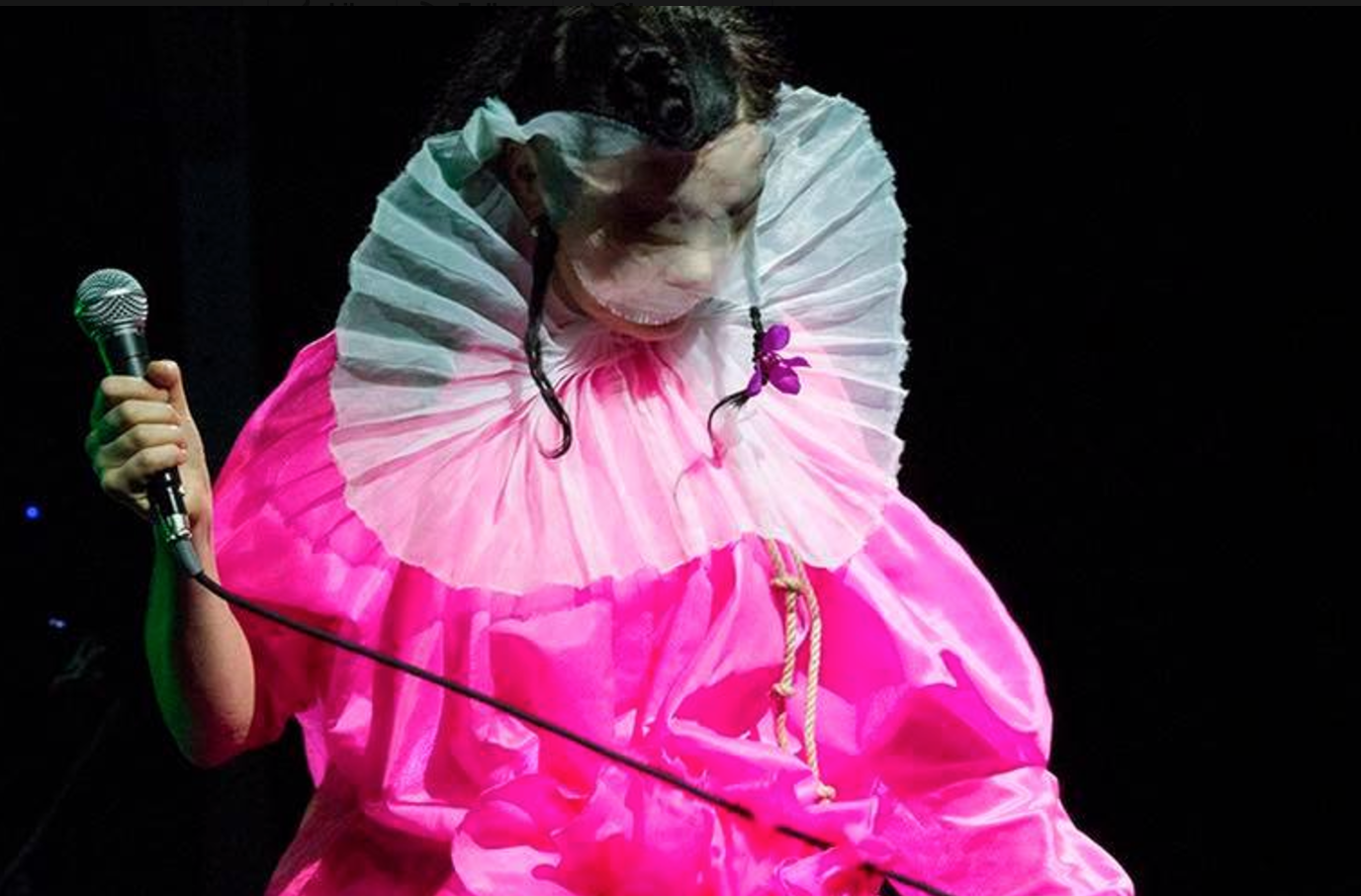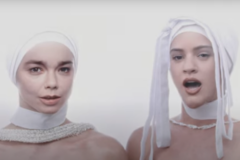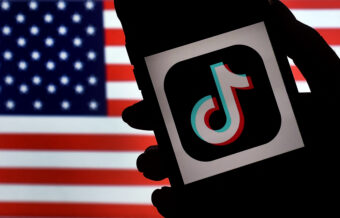Vulcinura, Björk‘s last album, was a breakup record on the surface, and more broadly, a meditation on processing loss and attempting to file difficult memories. Björk and Arca’s sumptuous, string-adorned production magnified the bittersweet nuance of her libretto. The music was heartfelt and unambiguous. Utopia, her next album due in November, takes the next step—she designated the record as “her Tinder album,” in an interview with Dazed. In many ways, her new single “The Gate” handily fits into this narrative, functioning as a fitting introduction to a record about rebuilding, rediscovering, and coming into a wholly new, triumphant state of independence. But it is not, as one might expect, exuberant or devil-may-care; it doesn’t feel like a spontaneous expression. Here, finding new love, or something approaching it, has a grander-scale significance, extending beyond just one rapturous moment. “The Gate” is a celebration, but a solemn and reflective one.
In her statement about the single, Björk writes that the “love” detailed in the song is “spiritual.” And indeed, the track opens with a long passage that sounds distinctly liturgical, reminiscent of centuries-old sacred polyphony. The vocals for the first minute of the song do not form clear lyrics, but their phonemes, at relevant moment, recall words from a Catholic Mass: “fili” and “sanctus.” Björk delivers the apparent mumbo-jumbo with as much significance.
When she slips into intelligible text, she sings about a portal to another emotional world, one that she has created through sheer force of her will as much as by happy accident. The musical complexity swirling around the vocals germinates gradually, as she rephrases the line “I care for you” over and over again, as if convincing herself of the point in real time. The didgeridoo-like electronic gulps that underscore her vocal lattices (in the vein of the arrangements on her 2004 all-vocals LP Medulla) morph into high, sensuous glissandos, and the music itself seems to be forming the gate’s giant arches.
Where does it lead? The title Utopia traces back to a comment Björk made about her new music’s themes in the Dazed interview: “Spending time with a person you enjoy on every level is obviously utopia.” “The Gate” seems to dramatize her narrator entering into an earthly paradise of her own conception. “Proud self-sufficiency,” she signs in the song’s final verse, nearly unaccompanied. “My silhouette is oval/It is a gate.” Though she is sharing another’s company, this seems to be very much her world; she is determining the conditions for its existence, and forming its very substance.
https://open.spotify.com/embed/track/4efmalCNEsGzNdLoDbuLuS





